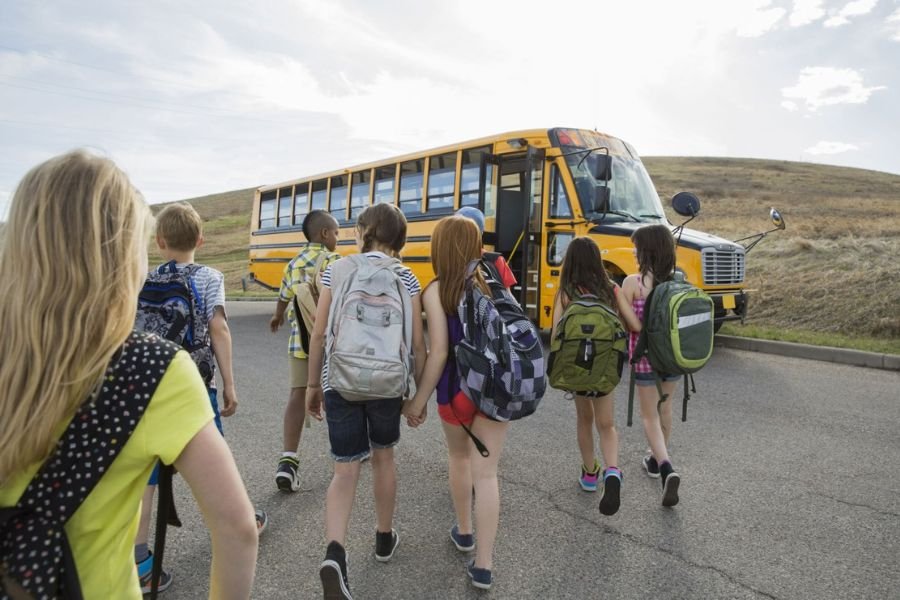10 Fruitful Benefits of Field Trips According to Educationists

Field trips are an important part of education because they give students experiences outside of school. Children learn more about subjects and build important life skills when they learn in real-life situations. More and more schools in the UK are going on field trips. A reliable coach hire for school trips ensures these trips are safe and don’t cause any problems. Educators have pointed out ten good things about field trips.
1. Hands-On Learning Opportunities
Students can learn in useful, hands-on ways while going on field trips. Going to museums, historical places, or science centers brings history, art, and biology to life. For example, students can see and touch fossils instead of just reading about them, which helps them understand better. This one-on-one contact makes kids more curious and helps them remember things longer. These activities are also good for people who learn differently, like those who know best by seeing or touching things. Reliable transportation, like renting a bus, makes sure that students can get to these helpful places quickly and safely.
2. Enhances Social Skills
Field trips allow kids to talk to their teachers and friends in less official settings. It helps people learn how to work together, talk to each other, and solve problems. Group activities like secret hunts at a historical site or talks at an art center make people get along and work together better. Sharing things that happen outside of school helps students get to know each other and build understanding. Coaches made for school trips give kids a safe place to talk and make new friends while traveling, another way to improve their social skills.
3. Broadens Cultural Awareness
Students learn about different countries, practices, and points of view through field trips. If they are in the UK, going to an art gallery, a play, or a heritage place can help them learn more about culture past. These activities teach kids to value differences and accept different points of view. Educators think seeing cultural practices in the real world makes people more open-minded and global. With coach-hire services, schools can plan trips to various cultural places so all students can take advantage of these opportunities.
4. Encourages Curiosity and Creativity
Getting students out of the classroom makes them more curious and helps them think of new ideas. Field trips get people thinking, whether they’re looking at animals in their natural environments on a wildlife trip or old objects in a museum. Kids are more likely to ask questions, look for solutions, and try new things after these experiences. Educationists stress that field trips encourage creative thought, which can lead to new ways of handling problems. Transportation choices that students can count on make these chances stress-free and let students fully immerse themselves in the experience.
5. Promotes Independent Learning
Kids go on field trips and are in charge of their learning. Kids are likelier to ask questions and find answers independently when they can go on self-guided walks, interact with exhibits, and explore activities. Some educationists say that giving students more freedom helps them feel more confident and think more critically. Students learn skills important for learning throughout their lives, like watching, understanding, and drawing conclusions. When students take a well-planned bus tour, they get to their places ready to explore and learn independently.
6. Supports Physical Activity
Many field trips include walking, traveling, or doing activities for students to stay physically active. A day at a historical place or outdoor education center is good for your mind and body because you learn and move simultaneously. Educators say hands-on activities help students pay attention longer and feel less stressed. In the UK, famous places like parks, nature areas, and interactive farms are great places to learn and move simultaneously. Coaches who are comfortable and have lots of space ensure that students can rest on the way and stay ready for the day.
7. Break from Routine
Field trips provide a refreshing change from daily routines. They re-energize students and rekindle interest in learning.
8. Life Skills Development
Planning, time management, and adaptability are essential for successful field trips. Students practice these skills during their adventures.
9. Strengthened Teacher-Student Relationships
Outside the classroom, teachers and students connect on a more personal level. This fosters a stronger sense of community.
10. Fun and Enjoyment
Learning doesn’t have to be dull. Field trips make education enjoyable, leaving lasting positive memories for students.




